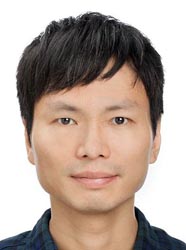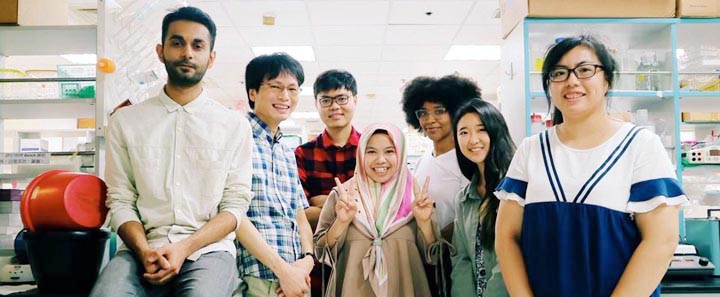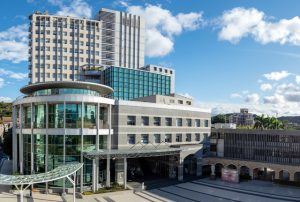 我所有有機生物的生命歷程,都會經歷兩種時間:內部的與外部的。日夜週期屬於外部時間,其循環不受有機生物影響;另一方面,走路跟睡覺的週期是內部時間的表現,這兩者間的關係並不簡單。
我所有有機生物的生命歷程,都會經歷兩種時間:內部的與外部的。日夜週期屬於外部時間,其循環不受有機生物影響;另一方面,走路跟睡覺的週期是內部時間的表現,這兩者間的關係並不簡單。
 我們有自由意志(或至少有製造出自由意志這個錯覺的潛在決策過程),它可以某種程度延後我們上床睡覺的時間,睡覺與醒來的時段受季節調節的影響頗大,我們所熟知的生物時鐘,在不知不覺中改變我們的內在時鐘,讓我們夏天時比冬天起得早。
我們有自由意志(或至少有製造出自由意志這個錯覺的潛在決策過程),它可以某種程度延後我們上床睡覺的時間,睡覺與醒來的時段受季節調節的影響頗大,我們所熟知的生物時鐘,在不知不覺中改變我們的內在時鐘,讓我們夏天時比冬天起得早。
然而,內部時間又非完全能不受外部時間影響,獨立運作,這讓事情變得有趣,這就是神經科學探討有機生物如何適應周邊環境的主要問題,但也許更有趣的是有機生物如何抵制適應,結果就是像哺乳動物等多細胞生物,在不同的器官、組織保有不同的「內部時間」(Myung et al., Nature Communications, 2018),而在很多細胞中,他們不會統一適應外部時間的改變(Myung et al., PNAS, 2015; Azzi et al., Neuron, 2017),接下來真正令人興奮的問題是,有機生物或這些適應與不適應之間的協作如何產生,這也是我所要聚焦的地方。
生物時間是連結理解心理時間的橋樑,晝夜節律的感知會因情緒的內部調節而改變,我認為情緒呈現了意識的周邊情況,是一種隨時間流逝的狀態。晝夜節律一直被認為與情緒及時間認知有關,但這些只有在動物研究中被證實,例如因時差破壞晝夜節律可能導致情緒失調,對憂鬱症病人,強制剝奪其後半段睡眠期,可以即刻,但短暫恢復正向的情緒狀態。一大早叫醒病人,可以模擬東向飛行所造成的位相前進時差狀態。雖然缺乏系統性研究,西向洲際間飛行一再被提到會短暫造成類似憂鬱情緒,而東向飛行會造成類似躁症的狀態,雖然沒有人認真看待這些觀察,但長久以來人們一直懷疑情緒與晝夜節律彼此間的關聯是存在的。
我計畫透過改變明暗週期,測量人為時差造成的全腦活動印記,剛開始的測量會從已知但獨立的區域開始,然後慢慢延伸到更多區域,以創造出全球時鐘動力學的意象。在後半部的研究,我會嘗試連結晝夜系統、情緒及動機迴路,利用時差研究情緒的實驗模式是創新的,可能會成為情緒失調研究的典範。如果能證明時差會造成躁或鬱的暫態,就可以解開大量臨床潛在的迷思。
我擁有物理學背景(高麗大學學士學位、浦項工科大學碩士學位),研究生理與生物物理學(華盛頓大學碩士學位),以及生命科學(京都大學博士學位),我先在廣島大學醫學院擔任助理教授,之後到日本理化學研究所,完成多時鐘研究,接著在柏林高等研究院做研究,及柏林古代學院擔任研究員,之後加入臺北醫學大學心智意識與腦科學研究所團隊,擔任副教授,並合聘於沖繩科學技術大學院大學及雙和醫院。(文/明智煥,臺北醫學大學心智意識與腦科學研究所副教授)【下圖:韓國籍的明智煥老師(左2)與學生、研究助理在實驗室合影】

Jihwan Myung:Laboratory of Braintime
All biological organisms live through two kinds of time—internal and external. Cycles of day and night are cues of external time that flows regardless of an organism. On the other hand, cycles of waking and sleeping are manifestations of internal time. The relation of the two is not so simple.
We have free will (or underlying decision processes that create such illusion) that can delay the time to go to bed to some degree. The phases of sleep and wake are also strongly modulated by the season: we get up earlier during the summer than we do in winter by the changes of our internal, unconscious, clock known as the circadian clock. However, internal time does not run completely independently of external time, and this is where things get interesting. It is a prime question in neuroscience how an organism adapts to its surroundings. But perhaps a more interesting question is how an organism resists from adaptation. It turns out that a multi-cellular organism such as a mammal maintains diverse ‘internal time’ in many different organs and tissues (Myung et al, Nature Communications, 2018)—and in many cells, and they do not adapt uniformly to changes of external time (Myung et al, PNAS, 2015; Azzi et al, Neuron, 2017). The really exciting question is then how organization, or orchestration of these adaptations and maladaptations occur. And this is what I mostly focus on to answer.
Biological time is a bridge towards understanding of psychological time. The perception of time over a circadian cycle changes through internal regulation of mood. Mood is an ambient state of consciousness and, in my opinion, a sense of time flow. Circadian rhythms have been thought to be related to mood and time perception, but the exact connection has been indicated only in animal studies. Disruption of circadian rhythms, for example by jet lag, can lead to mood dysregulation. Forced sleep deprivation during the latter half of the sleep phase can acutely, yet temporarily, restore positive mood states in major depression disorder patients. Waking up a patient too early in the morning emulahetes the phase-advancing (eastbound flight) jet lag condition. Although systematic studies are absent, westbound intercontinental flights are episodically told to briefly cause depression-like mood states and eastbound flights cause mania-like states. These observations have not been taken seriously, while the connection between the mood and circadian rhythms has been suspected for a long time. I plan to measure signatures of brain-wide activities after an artificial jet lag is induced, by changing light-dark cycles. Initial measurements will be made from known and isolated regions but will expand to more areas to create a picture for global clock dynamics.
In this later phase, I will attempt to make connection between the circadian system and mood and motivation circuits. The experimental paradigm of using jet lag for studying mood is new and is likely to serve as a model of mood dysregulation. If it can be established that jet lag causes a transient state of mania or depression, an enormous clinical potential can be unlocked.
I have physics background (BS, Korea University and MS, POSTECH), and studied physiology and biophysics (MS, University of Washington) and life sciences (PhD, Kyoto University). After working as an assistant professor at Hiroshima University School of Medicine, I moved to RIKEN Brain Science Institute and finished up multi-clock studies. I came to join the faculty of Graduate Institute of Mind, Brain, and Consciousness (GIMBC) at Taipei Medical University as an associate professor after residence at Institute for Advanced Study in Berlin and Berliner Antike-Kolleg as a fellow. I also maintain affiliations at Okinawa Institute of Science and Technology Graduate University (OIST) and at Shuang Ho Hospital.

